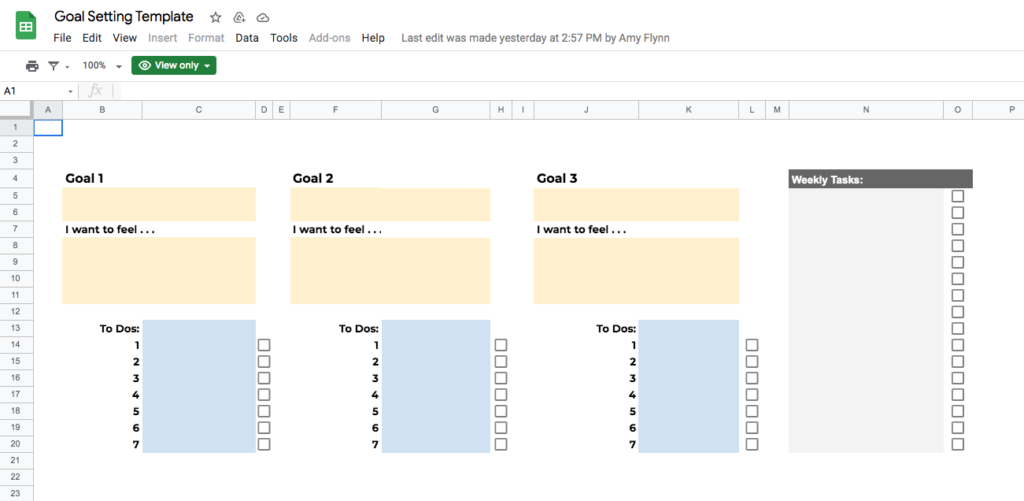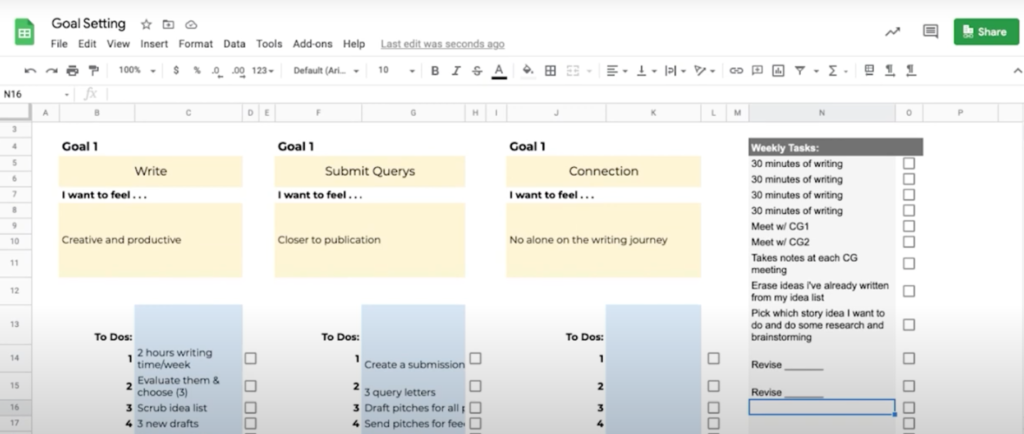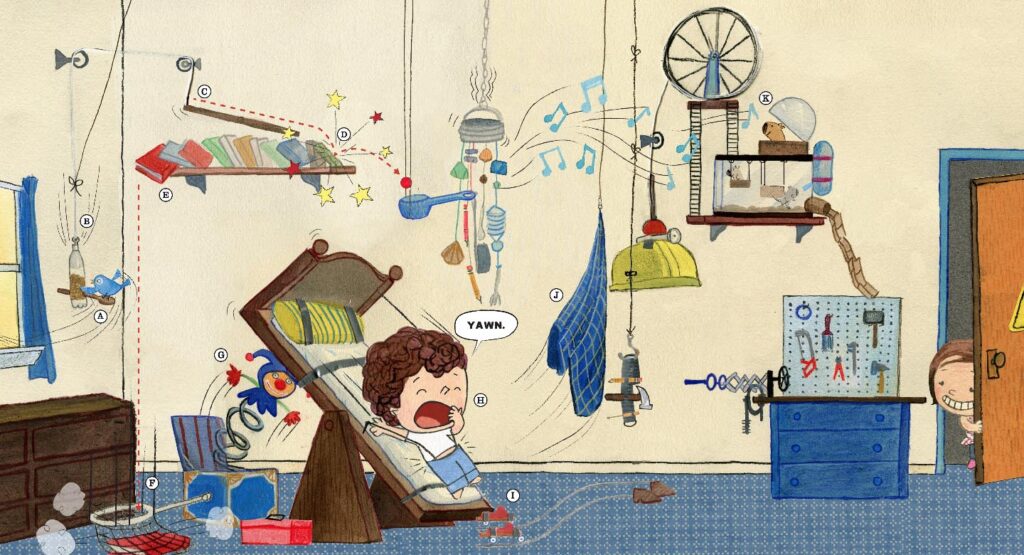Set, Track, and Achieve Your Writing Goals

As creatives, we’re in charge of managing our time and workload. You may already have a system that works well for you, but if you’re looking for an upgrade, Storyteller Academy Chief Operating Officer Amy Flynn is sharing hers.
In addition, she’s also sharing the link to her goal planning template so that you can duplicate it and save it as your own. (You’ll need to duplicate the template and save it to your own drive to use it. Instructions: After you click on the link, go to “File” and select “Make a copy” to duplicate it.) I’ve already saved a copy of the template to my drive to try out this week.
You’ll want to watch the following video to see how Amy uses the template. Afterwards, I’ll share some tips from Amy and some of my own thoughts on the process.
Tip #1: Goals Need to Be Measurable and Attainable
Amy talks about the importance of setting goals that are under your control. Goals like getting an agent or selling your book to a publisher depend on the actions of someone else, so they aren’t under your control. If you’d like to read more about this, I covered SMARTER goals in another blog post on finishing creative projects. SMARTER is an acronym that stands for specific, measurable, achievable, relevant, timely, evaluate, readjust. Amy’s goal planning template fits right into that mindset.

Can I just take a moment to tell you how much I’m loving Amy’s template already? You could use it for anything, not just writing or creative goals.
Amy suggests that you choose three goals to focus on for the next year. AND she wants you to think about how you’re going to feel after you accomplish each goal.
Honestly, narrowing my goals down to three was probably the hardest part of filling this out for me. I want to do ALL THE THINGS, but then I get so scattered that I don’t finish any of them. I love making to-do lists and checking things off, though, so I’m going to love that part of the process.
Tip #2: Know What Motivates You
Amy pointed out that it helps to know whether you’re more motivated by a word count goal or setting aside a chunk of time each day to work. And I had a small epiphany that that can depend on what stage of a project you’re in. Personally, I’m more motivated by word count when I’m writing a first draft of a novel, or finishing a first draft of a poem or picture book. If I’m making a dummy, I’m motivated by finishing a certain number of pages. Setting aside a chunk of time works better for me when I’m revising.

Tip #3: Keep Yourself Accountable
Amy lists off some different ways you could keep yourself accountable:
- Check in weekly with an accountability partner.
- Post your goals on social media.
- Put money in a goal jar when you check off goals.
Tip #4: Reassess Your Goals Regularly
After you’ve completed one of the chunks of time you’ve allotted in your plan, Amy says it’s time to evaluate whether or not your goals are on track. If it was too easy to achieve your goals, then you can set harder ones next time. If you had too much to do, then you can scale back next time.
Let us know how it goes!

Myrna Foster
Myrna Foster writes and edits content for Storyteller Academy and the WriteRiders Newsletter for SCBWI Nevada. She has spent a lot of time teaching and coaching children, including five years as a preschool teacher. She's also worked as a journalist, and Highlights High Five has published six of her poems.
FREE DOWNLOADABLE RESOURCES
Find them HERE

Learn how to write your children's book from professional, award-winning authors and illustrators
in your own time, at your own pace.
JOIN OUR COMMUNITY
Your creative village is waiting for you HERE.
And it's free!
FEATURED

How to Write Children's Books in 7 Steps
EXPLORE
RECENT POSTS
Instructor Stories: Darcy Pattison
Instructor Stories: Baptiste Paul
Instructor Stories: Isabella Kung
Challenges & Twitter Events for Kidlit Creators
Use Mentor Texts to Write Chapter Books

